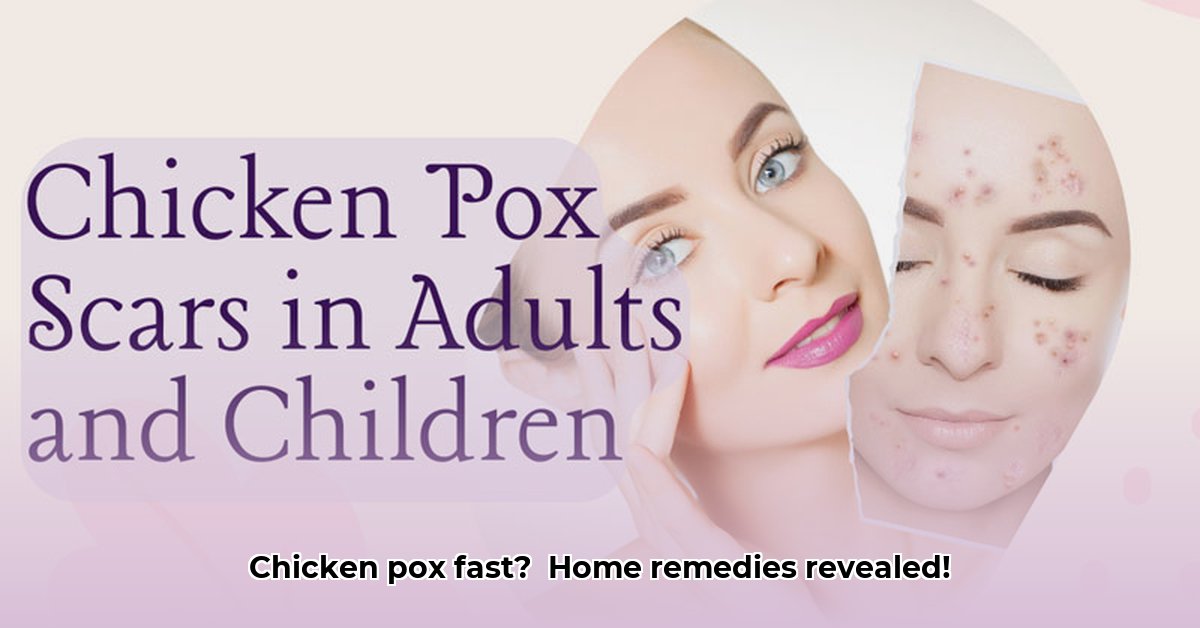
Eish, chickenpox! Seeing your little one covered in itchy spots is never fun, but moenie worry nie. While there's no quick cure, we can definitely make things easier and get your kid back to their bubbly selves faster. This guide shows you how to manage chickenpox at home and when to seek professional help.
Preventing Chickenpox: Vaccination is Key
Before dealing with the itchy spots, let's prevent them altogether! The chickenpox vaccine is a fantastic way to avoid this whole ordeal. It significantly reduces the risk of your child getting chickenpox. It's a simple jab that offers massive protection. Chat with your doctor about getting your child vaccinated – it’s a no-brainer.
Soothing Symptoms: Home Remedies for Relief
So, your child has chickenpox. Don't panic! It usually clears up on its own, but the itching? That's the real battle. These home remedies won't make the spots disappear overnight, but they'll ease the discomfort:
Oatmeal Baths: Add a few cups of colloidal oatmeal (available at most pharmacies) to a lukewarm bath. It soothes itchy skin – like a warm hug in water!
Calamine Lotion: This pink lotion is amazing for itching. Apply generously to the spots for relief.
Cool Compresses: A cool, damp cloth provides temporary relief. Think of it as a mini-ice pack.
Short Nails: Keep your child's nails short and clean to prevent scratching and infection.
Loose Clothing: Dress your child in loose, soft cotton clothing to avoid irritation.
Hydration: Plenty of fluids – water, juice, or electrolyte drinks – are crucial, especially if there's a fever.
Remember, these remedies offer comfort; they don't cure chickenpox.
Managing Fever and Pain: Safe Medication
Fever and aches often accompany chickenpox. Acetaminophen (paracetamol) is your go-to for fever and pain relief in children. Important: Never give aspirin to a child with chickenpox; it increases the risk of Reye's syndrome, a rare but serious condition. Ibuprofen can be considered, but always check with your doctor first.
When to See a Doctor: Warning Signs
Most cases of chickenpox clear up without complications, but some warning signs demand immediate medical attention:
- High Fever: A temperature above 39°C (102.2°F) that doesn't respond to acetaminophen.
- Severe or Widespread Rash: An unusually intense rash covering a large area of the body.
- Signs of Infection: Increased redness, pus, or swelling around the blisters suggest a possible bacterial infection.
- Breathing Problems: Difficulty breathing or swallowing is a serious emergency.
- Lethargy or Confusion: Unusual sleepiness or confusion could indicate a serious problem.
- Dehydration: Decreased urination, dry mouth, or lethargy, especially with a fever.
If anything feels wrong, call your doctor immediately.
High-Risk Groups: Extra Care Needed
Some individuals need extra care:
| Group | Increased Risk |
|---|---|
| Infants (under 1 year) | Developing immune systems make them more vulnerable to severe infections. |
| Pregnant Women | Chickenpox can be dangerous for both mother and baby (especially in early pregnancy). |
| Immunocompromised Individuals | Weakened immune systems increase the risk of severe complications. |
These groups need closer monitoring and may require antiviral medications.
Chickenpox: A Realistic View
Chickenpox takes time to run its course. The aim is to keep your child comfortable and prevent complications. This means vaccination; home remedies for symptom relief; and knowing when to seek medical help. This approach will help your child recover faster. Remember, this information is for guidance only and doesn't replace professional medical advice. Always consult your doctor.